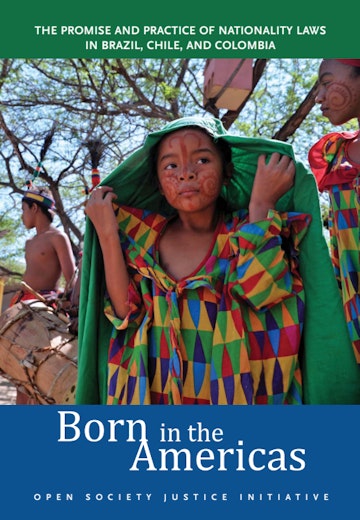Born in the Americas: The Promise and Practice of Nationality Laws in Brazil, Chile, and Colombia
Like most countries in the Americas, Brazil, Chile, and Colombia practice jus soli citizenship, in which nationality is generally granted to those born in the country’s territory. In theory, this is the simplest and most straightforward form of citizenship, and the most likely to prevent statelessness. But in practice, many people in Brazil, Chile, and Colombia struggle to obtain proof of citizenship and fully enjoy their citizenship rights, and some are left stateless.
Born in the Americas looks closely at the strengths and weaknesses of the three countries’ citizenship regimes, finding a significant gap between the promise of jus soli citizenship and its implementation on the ground. Further, the report finds that this disparity most often affects indigenous peoples, members of ethnic minority groups, migrants, internally displaced persons, and children.
Based on a comprehensive review and analysis of the history, laws, and practices of the three countries, Born in the Americas analyses case law, and offers detailed recommendations to improve current practices. The report argues that Brazil, Chile, and Colombia―and other countries in the region―must do more to ensure that the right to citizenship can be realized in practice for all people born in the Americas.
Topics
- Climate Justice
- Digital Rights and Fair Elections
- Discrimination and Racial Justice
- International Crimes

